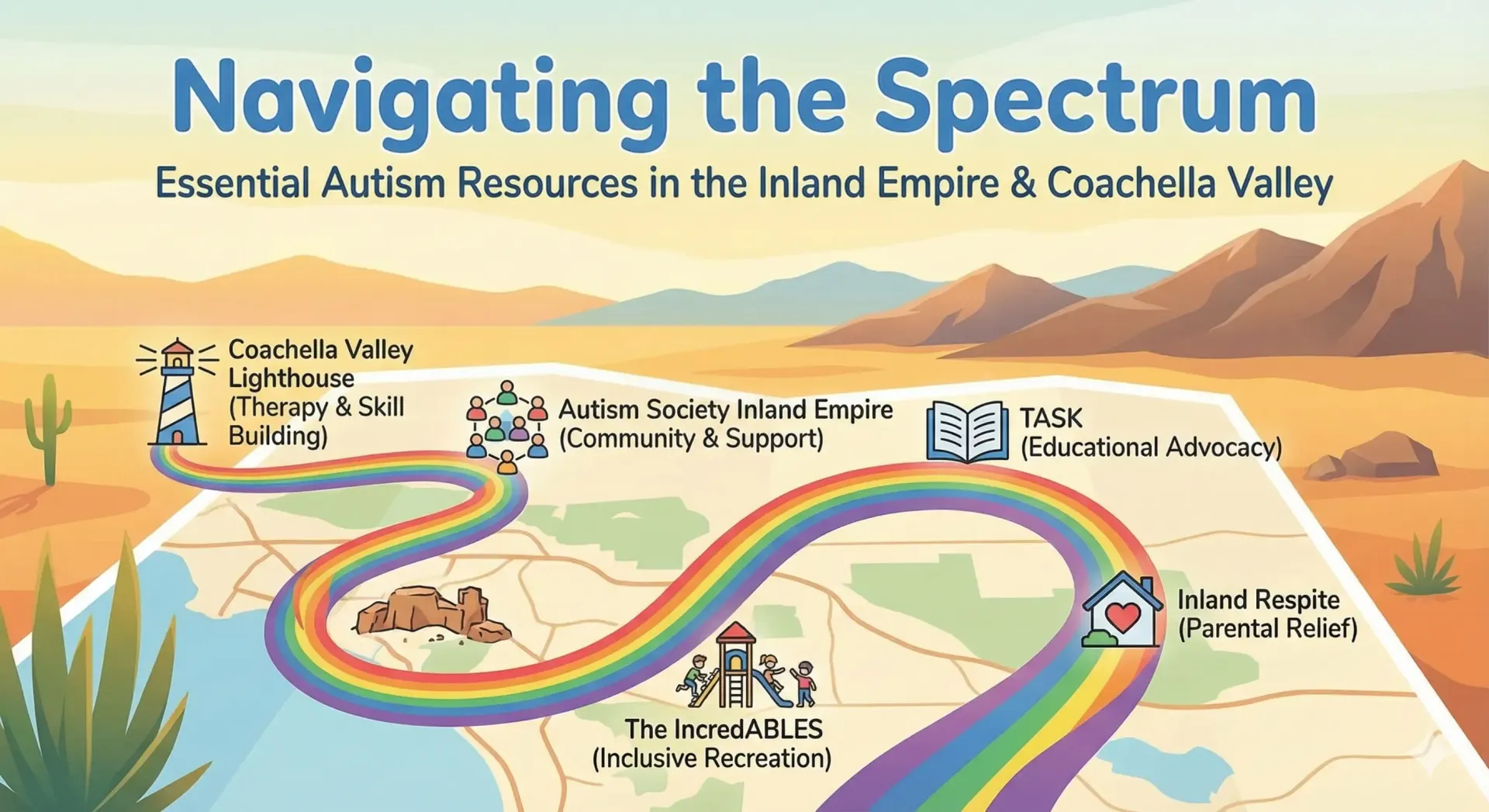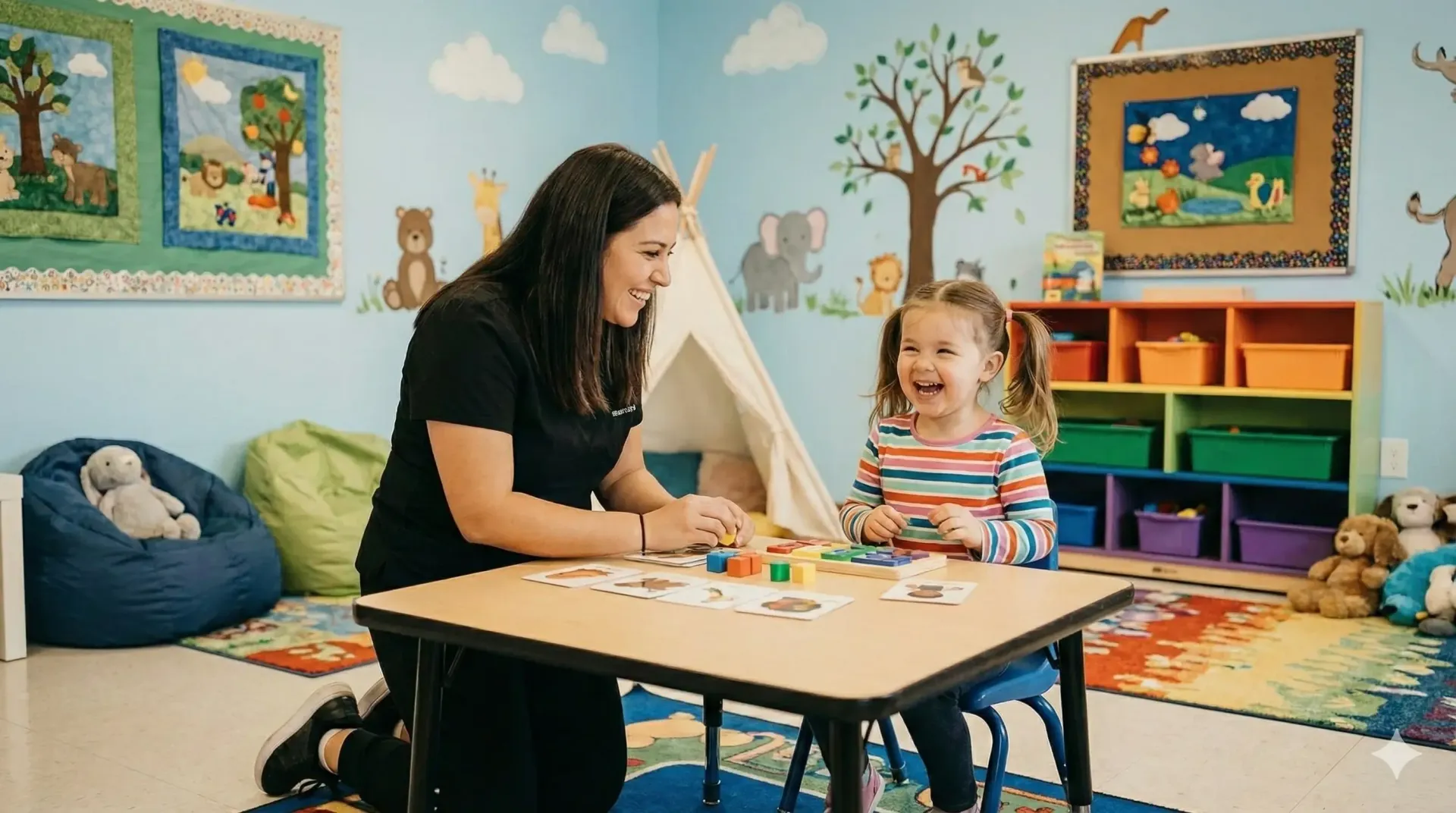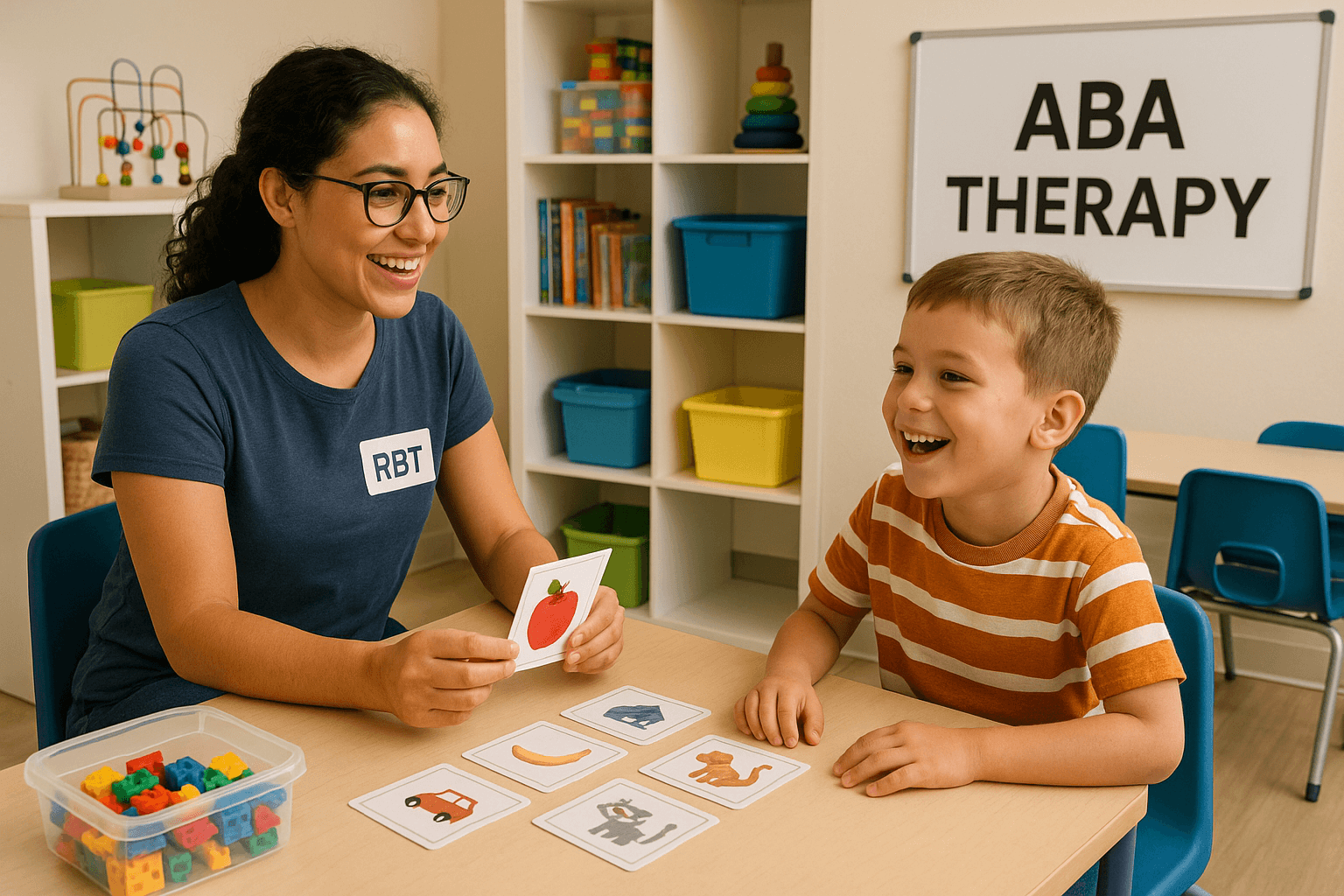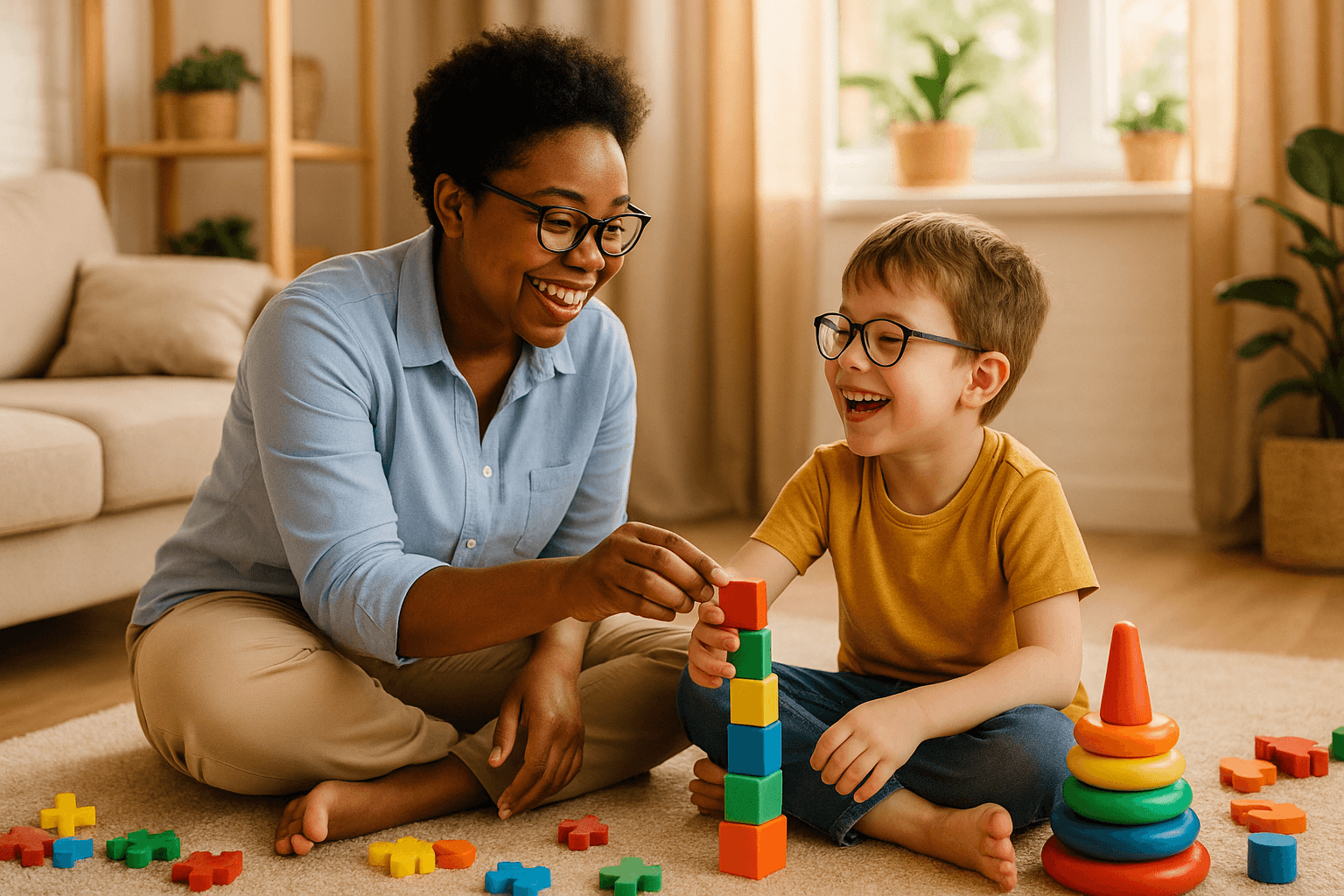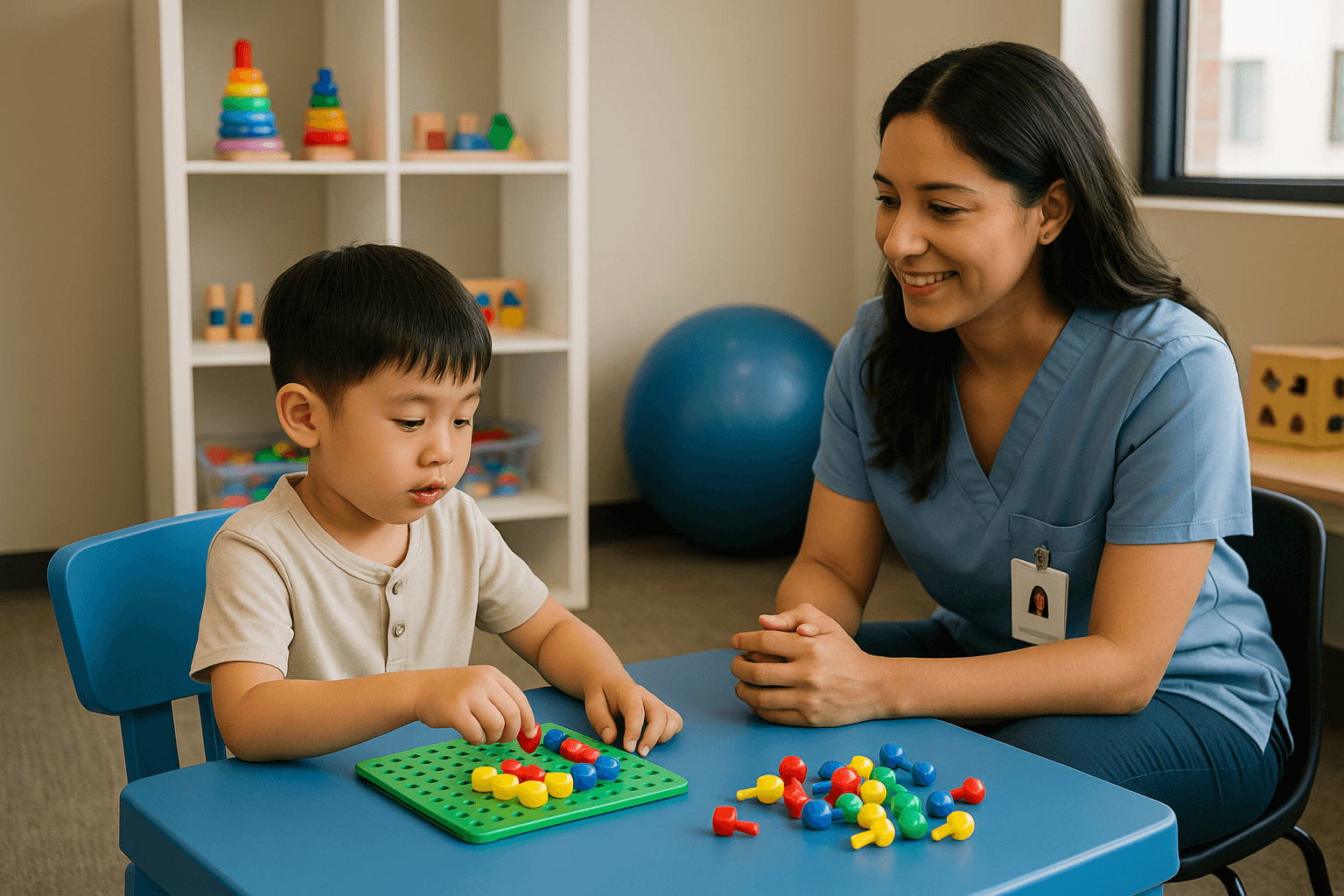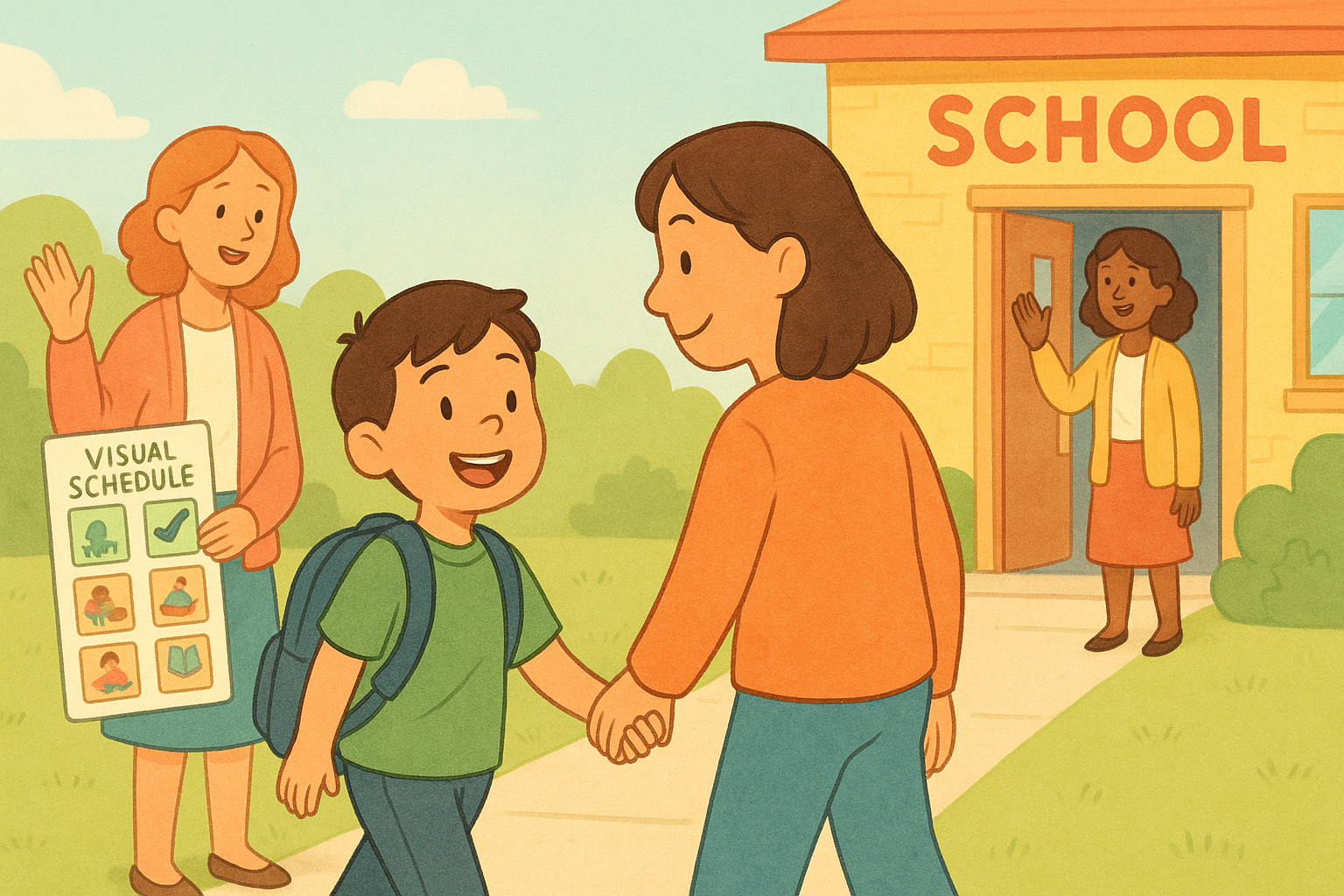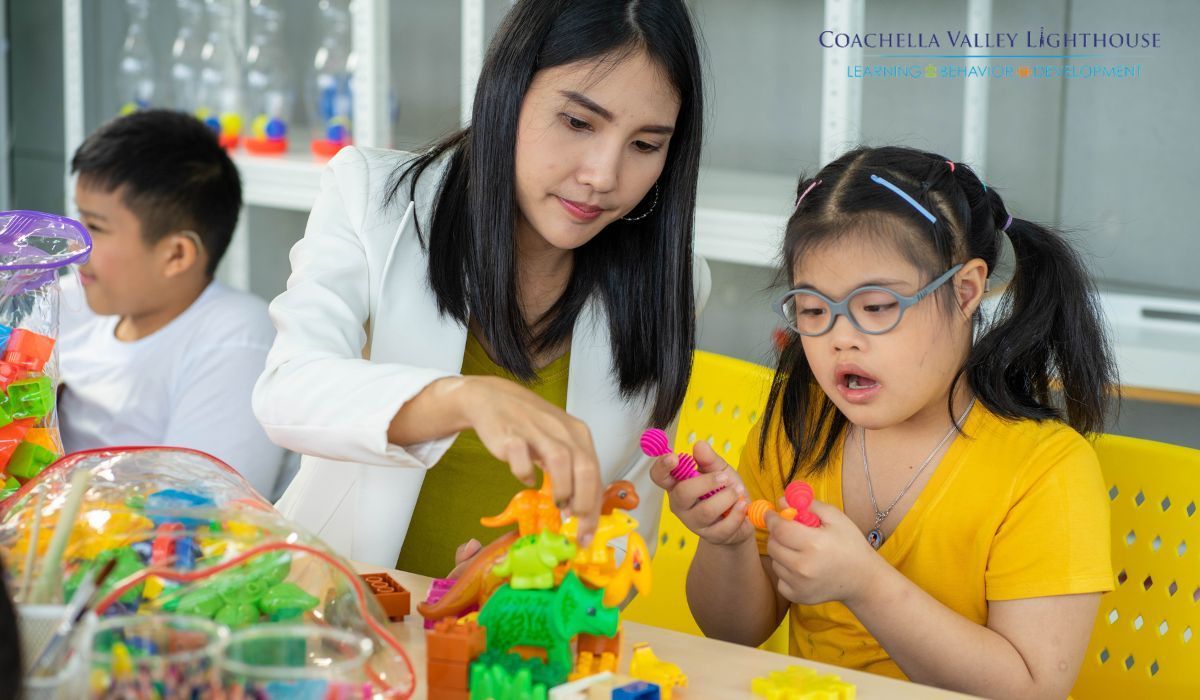Awkward to Awesome: How Social Skills Training Can Help Kids with Autism
Autism, a complex neurodevelopmental disorder, affects millions of children worldwide.
While it presents a spectrum of challenges, one of the most prominent difficulties children with autism face is in the realm of social skills.
For many, interacting with others can be a source of frustration and anxiety.
However, there is hope.
With the proper guidance and support, children with autism can transform their social interactions from awkward to excellent through social skills training.
In this article, we will explore the importance of social skills development for
kids with autism, the challenges they face, and how social skills training can help them thrive and build meaningful connections.
The Importance of Social Skills
Social skills are the foundation of human interaction, and they play a crucial role in a child's overall development.
These skills encompass a broad range of behaviors and abilities, including the ability to:
- Initiate and maintain conversations
- Interpret and respond to non-verbal cues (such as facial expressions and body language)
- Develop and maintain friendships
- Resolve conflicts and navigate social situations
- Show empathy and understanding
- Share experiences and engage in cooperative activities
For children with autism, mastering these skills can be a significant challenge.
However, social skills are not just about following societal norms; they also impact a child's self-esteem and emotional well-being.
Successful social interactions can boost self-confidence and reduce feelings of isolation, ultimately leading to a more positive and rewarding life experience.
Challenges Faced by Children with Autism
Children with autism face various challenges when it comes to social interaction.
These challenges may include:
Difficulty with non-verbal communication:
Many autistic children struggle to interpret and respond to non-verbal cues, such as facial expressions and body language.
This can lead to misunderstandings and miscommunications in social interactions.
Limited interest in peers: Some children with autism may have very narrow interests and find it challenging to engage with peers who do not share their specific interests.
This can hinder the development of friendships.
Difficulty initiating and maintaining conversations: Children with autism may have trouble starting conversations and may struggle to keep a conversation going.
This can make it hard for them to build relationships with others.
Sensory sensitivities: Many autistic children have sensory sensitivities that can overwhelm social situations.
For example, they may be sensitive to noise, light, or touch, leading to discomfort or even meltdowns in social settings.
Difficulty with empathy: Understanding and expressing sympathy can be challenging for some autistic children.
This can make it difficult for them to relate to other's emotions and respond appropriately in social situations.
Anxiety and social avoidance: Social situations can be anxiety-inducing for many children with autism.
This anxiety may lead to social release, further isolating them from their peers.
The Impact of Social Skills Training
Social skills training is a structured and evidence-based approach to help autistic children develop social skills to improve their interactions with others.
This type of training offers a range of benefits and can be a transformative experience for children with autism, their families, and their communities.
Improved Communication
Social skills training focuses on teaching autistic children how to initiate and maintain conversations.
It provides them with tools and strategies to understand and respond to non-verbal cues, making interactions smoother and more meaningful.
Through these programs, children learn how to express themselves effectively and engage in reciprocal conversations, essential for building connections.
Development of Empathy
Empathy, the ability to understand and share the feelings of others, is a vital social skill often challenging for children with autism.
Social skills training programs include exercises and activities that help children recognize and respond to the emotions of others.
This not only enhances their social interactions but also contributes to their overall emotional intelligence.
Friendships and Peer Relationships
One of the primary goals of social skills training is to help children with autism develop friendships and positive peer relationships.
These programs teach children how to identify potential friends, build rapport, and maintain these relationships over time.
As a result, children with autism can experience the joy of meaningful connections with their peers.
Reduced Anxiety and Social Avoidance
Social skills training programs often incorporate strategies for managing anxiety in social situations.
By teaching children how to navigate social environments with confidence, these programs can reduce stress and social avoidance, enabling children to participate in a broader range of activities and events.
Enhanced Problem-Solving and Conflict Resolution
Social skills training equips children with autism with problem-solving and conflict-resolution skills, which are essential for navigating social situations successfully.
These skills help children address disagreements and challenges, fostering positive and fulfilling interactions.
Increased Independence
As children with autism develop their social skills, they gain a sense of independence and self-reliance.
They become better equipped to handle social situations on their own, which can lead to increased self-confidence and a greater understanding of autonomy.
Effective Social Skills Training Strategies
Social skills training programs are designed to be tailored to the individual needs and abilities of each child with autism.
Here are some effective strategies commonly employed in these programs:
Role-playing:
Role-playing exercises allow children to practice various social scenarios and interactions in a controlled and supportive environment.
This helps them build confidence and apply what they have learned in real-life situations.
Visual aids: Visual supports, such as social stories, visible schedules, and social cue cards, are often used to help autistic children understand and navigate social situations more effectively.
Group therapy:
Group therapy sessions provide children with the opportunity to practice their social skills with peers who may have similar challenges.
These sessions can be structured and supervised by trained therapists.
Video modeling: Video modeling involves watching and imitating appropriate social behaviors demonstrated in videos.
This can be a powerful way for autistic children to learn and generalize social skills.
Reinforcement: Positive reinforcement, such as praise or rewards, is used to encourage and motivate children to apply their newly acquired social skills in real-life situations.
Parent and caregiver involvement: Parents and caregivers play a crucial role in supporting their child's social skills development.
They can work closely with therapists and educators to reinforce and practice the skills at home and in the community.
The Importance of Early Intervention
Early intervention is critical when it comes to social skills training for children with autism.
The earlier children receive support and training, the more likely they are to develop practical social skills that significantly improve their quality of life.
Early intervention also helps prevent the development of maladaptive behaviors and can mitigate some of the challenges associated with autism.
Parents, educators, and healthcare professionals should be vigilant in recognizing the signs of autism and advocating for early intervention services.
The sooner children receive social skills training, the better they will overcome social challenges.
The Role of Schools and Educators
Schools play a critical role in providing social skills training for autistic children.
Educators are often on the front lines, working closely with these children and implementing strategies to promote their social development.
Here are some ways schools and educators can contribute to this process:
Individualized Education Plans (IEPs): Schools can develop IEPs for autistic children that include specific social skills goals and strategies.
These plans are tailored to the unique needs of each child and guide their educational journey.
Special education programs:
Many schools offer special education programs that provide additional support and resources for autistic children.
These programs may include social skills training as a critical component.
Inclusive classrooms: Inclusive classrooms, where children with autism are integrated with their neurotypical peers, offer valuable opportunities for social interaction and skill-building.
Educators can facilitate these interactions and provide support as needed.
Training for teachers:
Teachers should receive training in understanding and supporting autistic children.
This training can help them create a more inclusive and supportive classroom environment.
Parent-teacher collaboration: Effective communication between parents and teachers is essential.
Regular updates and cooperation can ensure that children receive consistent support at school and home.
The Role of Parents and Caregivers
Parents and caregivers also play a significant role in the social skills development of children with autism.
Here are some ways they can contribute to the process:
Consistency: Consistency is crucial in reinforcing social skills.
Parents and caregivers should work with therapists and educators to ensure that the strategies used in social skills training are consistently applied in different settings.
Communication:
Open and regular communication with therapists and educators is essential.
This allows for a coordinated and holistic approach to the child's development.
Practice at home: Parents and caregivers can create opportunities for their children to practice social skills.
These can include structured playdates, family outings, and everyday interactions.
Support and understanding: Children with autism may experience setbacks and challenges.
Parents and caregivers should provide emotional support and understanding, reinforcing that progress is a journey, not a destination.
Education and advocacy: Parents can educate themselves about autism and advocate for their child's needs.
They can become informed about available resources and services in their community to ensure their child receives the best possible support.
Conclusion
Social skills training is a transformative intervention that can help children with autism overcome the challenges they face in social interactions.
By improving communication, empathy, and friendships, these programs provide the necessary skills for children to thrive and lead fulfilling lives.
Early intervention, collaboration between schools and parents, and dedicated support from educators and therapists are essential to a successful social skills development journey.
While the journey from awkward to excellent may be challenging, it is filled with hope, progress, and the potential for incredible personal growth.
With the proper guidance and support, children with autism can navigate the complexities of the social world, form meaningful connections, and lead fulfilling lives.
For more information or resources on social skills training and autism support, Contact
CVLighthouse.
They offer valuable insights and guidance to help you on this critical journey.
FAQs
What is social skills training for children with autism?
Social skills training is a structured and evidence-based approach aimed at helping children with autism develop the necessary social skills to improve their interactions with others. It encompasses many talents, including communication, empathy, and the ability to form and maintain friendships.
At what age should children with autism begin social skills training?
Early intervention is crucial, and children can start social skills training as soon as they are diagnosed. The specific age may vary from child to child, but it is generally recommended to begin as early as possible to maximize the benefits.
Are social skills training practical for children with autism?
Yes, social skills training is efficacious in improving the social interactions and communication abilities of children with autism. The movement's success often depends on the individualized approach and the consistency of implementation.
